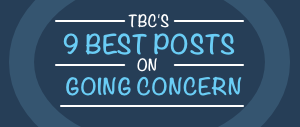From the mailbag. “How Millennial Accountants Should Deal With Crap Co-Workers”:
Hi Andrew,
I’d really love to see some articles about interpersonal work relationships and generational differences.
My stint in public accounting ended because of crap coworkers. I wish I would have had the resources to cope/deal with them. I had encountered bullies, people taking credit for my work, peer pressure, gossip, you name it. I didn’t want to deal with it, so I left. Went right into the same thing at my next job. A brilliant coworker of mine said every job is the same sh*t, different smell.
I need to develop the tools and resilience necessary to “rise above” or whatever else is recommended.
Thanks,
Amber
The truth is… public accounting is hard.
I felt so overwhelmed the first week of my PwC internship.
You have to dress up.
Work in an office.
Appear smart and prepared (when you have no idea what you’re doing).
And what happens on top of that?
Some people are just plain mean.
You could have a fellow co-worker that’s jealous.
Someone that’s more senior than you that doesn’t like you.
Maybe they’ve given up on their career and they can’t stand you still have the bright light many interns or first years have.
My biggest piece of advice to anyone entering the profession:
Never, and I mean NEVER let your enthusiasm die! No matter how many things you have to change or jobs you have to quit.
There is nothing more important to the next 30+ years of your professional life than your be excited, happy, and find purpose and meaning in what you do!
The truth is, everyone has bad bosses.
People that require you to work as much as they do – even if you’re more efficient.
People that force you to say you worked 9 hours when you worked 13.
People that leave 52 review notes on a single word document (ya, it happened).
In the first few years, you tend to have these terrible bosses because the best people have already been promoted to work on higher level issues!
Here is the secret I used to overcome this:
It’s okay to say:
“This person has been here longer than me and they have seniority over me. But they are a terrible manager, miserable person, and hurting the company:
It’s probably true.
But I wouldn’t go shouting that down the halls.
This is for you to know and tell yourself.
Then you bust your a$$ for them.
Don’t give them any objective evidence that you…
Showed up late.
Don’t know as much as you should based on trainings.
Missed a client deadline.
Aren’t prepared for meetings.
Don’t give them anything to show that you aren’t rock solid.
Then after a few weeks, speak with your coach.
Say something like this:
While I feel I’ve learned quite a bit while working on ABC client, I’m not sure it’s the best team fit for me. I think for some people, this could be the perfect environment, right people, and right client.
But I’m not so sure that’s the case for me.
I’ve worked hard and I think I’ve done a great job. I expect to see that in my review.
But I can’t say that I’ve personally enjoyed it.
And that’s surprsing for me.
I really enjoyed XYZ and MNA client. And I really enjoying working here. I am incredibly greatful for the opportunity.
But I know that if I spend another few months on this job, I won’t be happy. And I don’t want that.
I plan on working here for many years, but I can see how I’ve started to feel in just a few short months.
What would you recommend I do?
In public accounting, things don’t change overnight. Especially when it’s your first year.
The truth is, you need to be a little patient, a little political, and don’t let anyone have objective reasons to doubt you are an incredible asset to the company.
The next week, pop-in and have the same conversation with HR. Then maybe a Partner your close with.
People can’t help you if they don’t know what’s going on.
The best way to deal with these situation is to:
Talk with the right people, behind closed doors, in a consistent and patient way until you get what you want. Then show tremendous gratitude!
By taking these steps you showing:
You are the mature one.
Yo haven’t given up on your career.
You are looking out for you and the company.
If you keep handling conflicts this way, you’ll rise quickly in the organization and leave the terrible bosses in the dust to whine, cry, and be miserable for the next 30 years!







